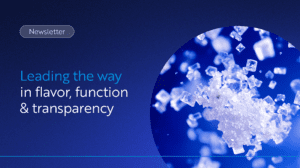Athletes have different nutritional needs than the average person, and finding the right balance can make a big difference in performance and recovery.
Key takeaways:
- Nutrition plays an important role in an athlete’s health and performance, so it’s crucial to make sure your body is getting the nutrients it needs.
- Sweat rate and sodium loss are both important to the athlete’s recovery and performance.
- The body needs sodium for optimal performance, but getting too much or too little of this key mineral can cause problems.
For athletes, proper nutrition is the key to fueling the body for high endurance, peak performance, and optimum recovery. Athletes need to find a nutritional balance according to their body weight and composition, the amount of time they spend training, and the type of activity they engage in. When it comes to nutrition to maintain peak performance, every athlete needs to consider the following:
- Their caloric needs
- Macronutrient amounts and ratios
- Meal and snack timing
- Vitamins and minerals for recovery and performance
- Hydration
Every athlete needs enough energy and nutrients to meet the demands of training and competition, and overlooking this crucial fact can lead to low performance and poor recovery rates. While there are a lot of nutritional factors to consider, sodium, in particular, can impact athletic performance and overall health.
The role of sodium in athletic performance
With sodium, it’s all about balance. The correct amount of sodium helps keep your body stabilized. Sodium’s role in the body is to help keep the right amount of water inside and outside of your cells and in your blood. Sodium intake, both high and low, has been known to cause health concerns and performance issues in athletes. Too much sodium leads to high blood pressure and heart disease. Too little can cause muscle cramps and other issues.
An athlete’s sodium balance depends on how much they sweat. The more an athlete sweats, the more sodium they lose. That’s why it is important to know your sweat rate when you’re training To measure sweat rate, weigh yourself before and after an intense training session. A one-pound drop equates to losing 16 ounces of sweat. With this information, you can balance your fluid intake during similar training sessions. Losing 16 ounces of sweat means drinking 16 ounces of fluid to maintain electrolyte balance.
If an athlete doesn’t pay attention to how much they sweat in relation to how they are hydrating and refueling their bodies, it can lead to muscle cramps or even worse, hyponatremia. Hyponatremia can occur when an athlete loses a great deal of sodium during intensive exercise, and the athlete drinks a lot of plain water, which further dilutes sodium levels in the blood.
Again, optimum sodium intake is all about balance. Tracking how much you sweat can give you a good idea as to how your sodium intake needs to be adjusted. As long as their baseline nutrition consists of whole healthy foods and not high-sodium processed foods, most athletes probably don’t need to alter their sodium intake very much. Some athletes, if they sweat a lot, may need to increase their sodium intake in a healthy and monitored way.
Benefits of low-sodium snacks
To maintain a healthy baseline, it’s a good idea to follow the FDA’s guidelines for general sodium intake. Even though there are times when you might require more sodium to replace what was lost through sweat during training, that doesn’t mean that you need to consume extra sodium all the time. In fact, doing so could lead to health issues like high blood pressure over the long term.
Proper nutrition planning for athletes
Meal prepping is particularly important for athletes. There is a delicate balance of carbohydrates, protein, and fats that athletes need to reach peak performance. The recommended breakdown looks something like this:
- Carbohydrates 45-65% of calories
- Protein 10-35% of calories
- Fat 20-35% of calories
An example breakfast could be eggs, salmon, fresh spinach, and a whole grain piece of toast or bagel. This should be adjusted based on the sport and the amount of time you spend in training.
When snacking, it’s important to continue to keep things healthy. Things like carrot or celery sticks, bananas, roasted chickpeas, cottage cheese, yogurt, or hummus could work for an athlete on the go.
What an athlete eats before or after a workout can impact their performance and recovery as well. A good balance of carbohydrates and protein should be included in both pre- and post-workout snacks. The proper nutritional fuel is going to depend on the individual athlete’s training intensity length and caloric needs. An athlete needs to learn to listen to their body. Here are a few post- and pre-workout snacks to try.
Pre-workout snacks:
- A peanut butter and banana or PBJ sandwich
- Greek yogurt with berries
- Oatmeal with low-fat milk and fruit
Post-workout snacks:
- Post-workout recovery smoothie
- Low-fat chocolate milk
- Turkey on a whole-grain wrap with veggies
If you’re not actively trying to replenish sodium, SaltMe®️ Chips can be a great packaged snack alternative. They’re made with less sodium and pack a flavorful punch for the snack-craving athlete who wants a little crunch without too much salt. It’s a tasty way to keep your daily sodium intake in check.
Proper nutrition is a game-changer
With so many factors that play into athletic performance and recovery, one thing athletes can control is their nutrition. With the proper balance of calories, macronutrients, vitamins, minerals, and hydration, athletes can stay at the top of their game, feel strong, and see improvements in their energy and performance.
Everything, including sodium, should be maintained in proper balance for optimum health. This is why keeping healthy snacks around like SaltMe®️ Chips can really be a game-changer. If you want to learn more about healthy, low-sodium snack options, check out MicroSalt®️ the makers of SaltMe®️ Chips. And contact us if you’d like to chat snacks!




